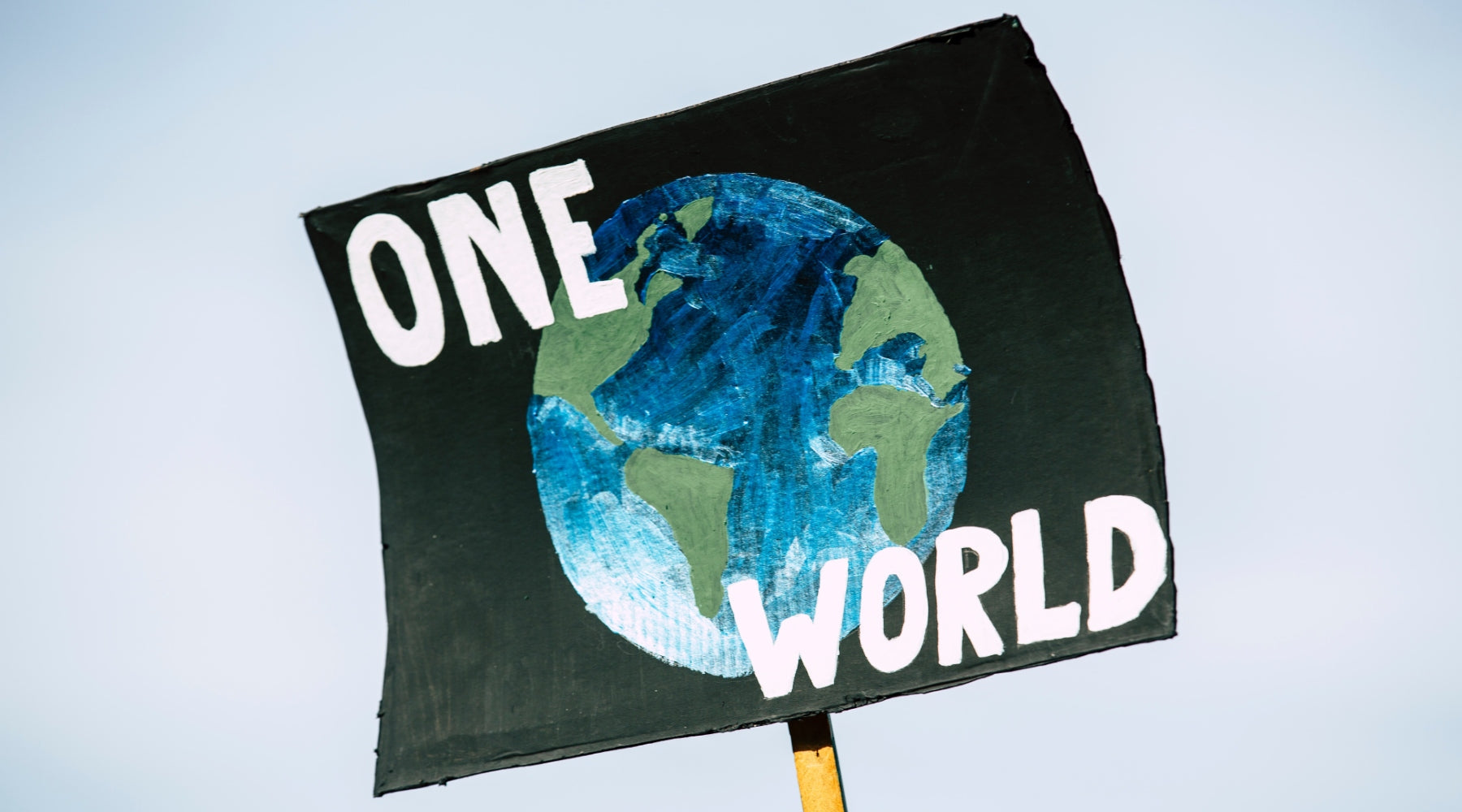
5 Reasons to Go Green the Vegetarian Way
Humanity’s impact on the environment could be greatly reduced if we took a single action: eat less meat. Animal agriculture plays a leading role in the environmental issues that plague our planet. These include climate change, land degradation, groundwater pollution, wildlife extinction, animal cruelty, habitat loss and destruction, animal-waste runoff and groundwater pollution.
Each day, a person who eats a vegan diet saves 4,100 litres of water, 20kg of grains, 2.7 square metres of forested land, 9kg CO2 equivalent, and one animal’s life. If you’re hesitant to cut out dairy entirely, adopting a vegetarian diet is a great place to start.
In light of World Vegetarian Awareness Month, let’s dive a little deeper into why adopting a vegetarian is not only better for our bodies – but also better for animals and our beautiful planet. These are five key environmental benefits that would occur if more people adopted a vegetarian diet:
1. Prevent climate change
According to a 2006 UN report, animal agriculture is responsible for 18% of global greenhouse gas emissions – more than the combined exhaust from all transportation. Livestock and their byproducts account for at least 32,000 million tons of carbon dioxide (CO2) per year. That’s 51% of all worldwide greenhouse gas emissions. By reducing your meat intake, you’re reducing the demand for animal-based proteins – helping to slow down climate change by lowering emissions.
2. Preserve land resources
Around 30% of the world’s landmass is made up of acreage that’s used for grazing and to grow feed crops and a third of worldwide grain production is used to feed livestock. This is concerning for a number of reasons. Not only are developing countries starting to eat more meat, but it’s expected that the human population will grow by 3 billion and global food consumption will double over the next 40 years. If we continue to eat meat the way we do, we are heading into a global food crisis.
To do your bit, try cutting back on your weekly meat intake and replace it with fresh fruit and vegetables, rice, beans and Amazonia's Tender Jack range! This awesome meat alternative has a similar texture to pulled pork – plus it's naturally low in calories and a great source of fibre and potassium. The best part? A vegetarian requires about 20 times less land than the average meat-eater – so you'll be doing your bit for the planet.

3. Reduce animal-waste runoff and groundwater contamination
The widespread consumer demand for animal meat has resulted in equally large animal farms that generate millions of tons of manure and urine every single day. This animal waste is passed into huge waste lagoons, which often overflow, break and leak – polluting groundwater sources with harmful phosphorus, nitrogen and antibiotics. These harmful chemicals not only contaminate the nearby water but also end up polluting streams, lakes, rivers and the ocean.
4. Reduce deforestation and forest pollution
Currently, forests are being cleared around the world not because of the timber they can provide but for their land that makes room for livestock farming and marine aquaculture. According to a recent food report, Friends of the Earth found that approximately 6 million hectares of forest land is being cleared each year – that’s equivalent to double the size of Belgium. There has also been a significant sized acreage cull of mangrove forests, with around a fifth of mangrove forests worldwide becoming replaced with aquaculture farms. This is a problem for the environment as the trees in forests reduce the impacts of climate change by absorbing carbon dioxide and mangrove forests growth counteracts rising coastline sea levels.

5. Minimise overfishing and species extinction
Animal agriculture is the leading cause of species extinction, ocean dead zones, water pollution, and habitat destruction. We are draining our oceans of seafood at an alarming rate. If overfishing does not stop, it's estimated that the world will run out of seafood as soon as 2048.
Forests are destroyed to grow feed crops and for animal grazing, and predators and "competition" species (such as wild dogs) are often hunted because they may threaten livestock profits. According to an interview conducted by Dr. Oppenlander with Simon Stuart, PhD, Chair of the International Union for Conservation of Nature Species Survival Commission: “Habitat loss from grazing livestock and feed crops is far and away the most pervasive threat to terrestrial animal species, impacting 86% of all mammals, 88% of amphibians, and 86% of all birds.”
In addition, the widespread use of pesticides, herbicides and chemical fertilizers used in the production of feed crops often interferes with the reproductive systems of animals and poisons waterways. If, after reading all this, you still find it difficult to imagine cutting out meat entirely – try cutting your meat consumption down to just one meal per day with the end goal of going vegetarian. By adopting more habits that align with a plant-based way of life – and encouraging your friends and family to do the same – you have the power to make a massive positive impact on the world’s environment.
References
https://www.cowspiracy.com/facts
http://www.fao.org/3/a0701e/a0701e00.htm
https://www.wavetribe.com/blogs/eco/why-being-a-vegetarian-is-good-for-the-environment
https://www.vitacost.com/blog/how-a-vegetarian-diet-benefits-the-environment/
https://www.theguardian.com/lifeandstyle/2010/jul/18/vegetarianism-save-planet-environment


